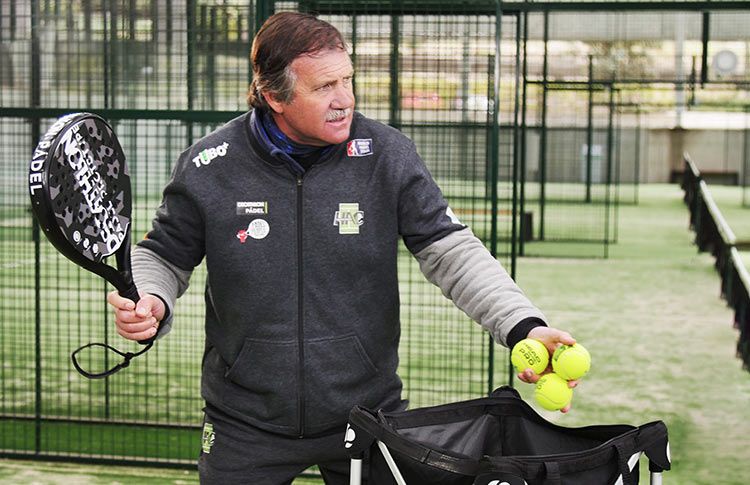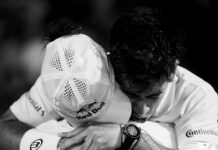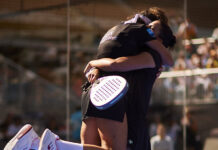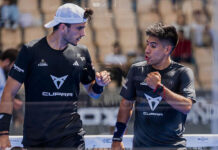Padel World Press .- Horacio Álvarez Clementi is one of the leading names in the history of padel, who became one of the first idols of this sport during his time as a player and has spent more than two decades teaching his skills as a coach. From these moments, in Padel World Press We will have the privilege of having a section in which every month will answer the questions of the fans.
Then we leave you with the first installment of this enriching section: 'The HAC Effect'.
Ask Horacio Álvarez Clementi:
What advice could you give me to improve the performance of the game in high competition? (Ernesto Martínez, Úbeda)
ANSWER:
There are several points to keep in mind to get better performance on the track.
The most important advice I can give you is to do quality training and with a lot of intensity, since it is very complicated that things go well in the competition if you train poorly.
Once a solid technical and physical base has been achieved, the tactical and mental aspects come ... Many times players complain about some errors thinking that they are technical and, in general, they are due to tactical problems, location on the court or else concept.
Next I will give you some basic points to be more efficient with your game.
1.- The margin of play
It is very important to manage the margins of the shots according to the level of play of each one, as if there were a limitation of a smaller imaginary track inside the real one. It can be 1,5 m of the grid and the track bottom.
In addition to the virtual limitation of the track, you must consider the additional flight margin of the ball (about 30 cm above the height of the net). This way they will throw less balls out and into the net. In case of a very fair execution, they will have that margin in favor and they will avoid losing the point.
The more advanced players will play more to the limit using the official measurements of the track (10 x 20 m), with an 30 or 40 cm margin.
2.- Evaluate the risk of each play
Each action implies a risk. The ability to decide when to risk and when to take care of the ball is another factor that affects own or unforced errors.
When they are in the net, their volleys must be safe and deep, without taking too much risk, until the opportunity to define is presented.
When you are at the bottom, remember that you are defending… Do not try to win the point from the bottom until you have a short high ball left from your opponent or you generate a big wall bounce. There you do have to try to be a little more offensive.
3.- Playing with the score
Do not try hard plays in the most committed moments of the game.
When they dispute important points, they make simple shots, with margin, that imply less risk because in those moments they play with extra pressure.
When they are confident with their punches, play with greater intensity and use more aggressive punches.
Manage the score and be 'more or less offensive' depending on it.
4.- The Strategy
If they are winning the game, continue playing in the same way. Do not change your strategy; it is the rivals who should look for a variation.
Sometimes it happens that, when it is won comfortably, the player trusts and tries very risky shots and, with those mistakes, gives opponents the chance to recover.
Therefore, if you can, win as many points as possible and do not try impossible actions. They may come to regret.
5.- The 'Spectacular' Games
Many times attempts of "luxury" blows are seen, which, in most cases, are lost points.
Some are content with those 'quality' shots without thinking about the result, which, after all, is what counts ... We usually say to these types of players that: "You played like never before and lost like always".
The most important thing in this sport is the final performance.
6.- Own or unforced errors
It is very important the 'computation' of each player with respect to own mistakes and forced ones. This, to a large extent, will give you a very clear position in front of each shot, where the statistics that the players themselves will dictate if they should risk or take care of the next shot.
To talk about numbers, each player should not have more than five errors per set, because if we add to them the forced ones will be clearly at a disadvantage.
There are couples who base their game on aggression and do not consider unforced errors, so they end up losing or suffering until the end.
If we observe the best professional players we will verify that they are true masters of the administration of the game. They handle the result and the proportion of risk hits and decide with skill when to use them. The greatest virtue of them is knowing how to play more defensive or intermediate punches when they are pressed, getting few mistakes of their own, and being very offensive when the opportunity presents itself.
Remember that paddle tennis is a tactical sport ... Therefore, keep in mind that sometimes the smallest details will give you a victory.
7.- The Mental Aspect
To all the above topics we must add the mental aspect.
In order to achieve mental consistency they must train concentration, know how to focus attention and work on the visualization method in training and in competition.
These tips that I give them are valid for all levels of play.
Horacio Álvarez Clementi
* You can follow all the news of the world of paddle in our profiles of Facebook y Twitter as well as subscribe to our Newsletter .














